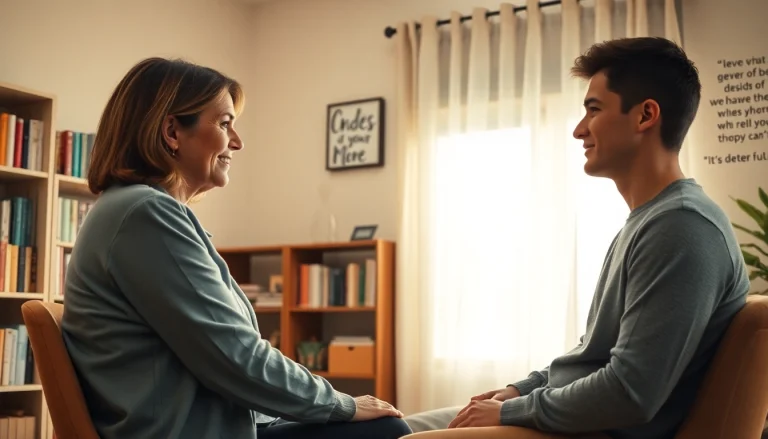What is Attachment Theory?
Attachment theory is a psychological framework that explains the dynamics of long-term interpersonal relationships. Initially developed by psychologist John Bowlby in the mid-20th century, it elucidates how the bonds formed in early childhood between infants and their primary caregivers can influence emotional and social development throughout life. This theory posits that the quality of these early attachments can shape not only current relationships but also individual mental health and well-being.
The Origins of Attachment Theory
Attachment theory was born from Bowlby’s observations of the effects of separation and loss on children, particularly in the context of World War II. Bowlby believed that children needed a secure base from which they could explore the world while having a trustworthy figure to return to in times of stress. His work was further enriched by the contributions of developmental psychologist Mary Ainsworth, who developed the “Strange Situation” assessment, illustrating different attachment styles that children exhibit based on their interactions with caregivers.
Key Concepts in Attachment Theory
At the core of attachment theory are several key concepts:
- Attachment Styles: These are categorized as secure, anxious, avoidant, and disorganized. Each style reflects a different way individuals relate to others based on their early experiences.
- Secure Base: This concept refers to the caregiver’s role in providing a safe haven, allowing children to explore their environment.
- Internal Working Models: These are mental representations of self and others formed through interactions with caregivers. They dictate how individuals perceive their relationships and manage emotional responses.
Importance of Attachment Theory in Therapy
Attachment theory has become instrumental in therapeutic practices, particularly in understanding and addressing relationship issues. When clinicians recognize a client’s attachment style, they can tailor interventions that align with their emotional needs. This understanding fosters healing, as clients explore their past relationships and how these inform their current interpersonal dynamics. For those interested in the therapeutic realm, seeking out an attachment theory specialist can be a transformative step.
Role of an Attachment Theory Specialist
An attachment theory specialist is a mental health professional trained to understand and apply the principles of attachment theory in therapeutic contexts. They help clients navigate the complexities of their relationships and emotional responses, facilitating healing and growth based on an individual’s attachment style.
Qualifications and Training of an Attachment Theory Specialist
To become an effective attachment theory specialist, professionals typically undergo extensive education and training. This includes:
- Advanced Degrees: Most specialists hold a master’s or doctoral degree in psychology, social work, or a related field.
- Certification in Attachment Theory: Many professionals choose to pursue additional certifications that focus on the application of attachment theory in clinical practice.
- Continued Education: Ongoing workshops and training ensure that specialists stay current with the latest research and therapeutic techniques.
Methods Used by Attachment Theory Specialists
Attachment theory specialists utilize various methods to help clients understand and improve their relational patterns, including:
- Emotionally Focused Therapy (EFT): This method emphasizes the importance of emotional expression in forging secure attachments.
- Trauma-Informed Care: Recognizing how past trauma impacts current relationships enables specialists to guide clients in healing effectively.
- Psychodynamic Therapy: This approach allows individuals to explore their inner thoughts and feelings linked to past attachment experiences.
Benefits of Working with an Attachment Theory Specialist
Engaging with an attachment theory specialist can offer multiple benefits:
- Improved Relationships: Clients learn to identify their attachment styles, facilitating healthier interactions.
- Enhanced Self-Understanding: Understanding past experiences and their influence on present behaviors provides clarity and self-acceptance.
- Resilience Building: Learning strategies to cope with emotions and relationship challenges aids in developing resilience.
Common Issues Addressed by Attachment Theory Specialists
Attachment theory specialists often deal with prevailing emotional and relational issues, aiming to foster transformation and healing.
Anxiety and Attachment Styles
Anxious attachment styles can significantly contribute to anxiety disorders. Individuals may exhibit constant worry about their relationships’ safety and stability. Through therapy, they can work on developing healthier, more secure attachment patterns, reducing their anxiety levels.
Overcoming Relationship Challenges
Many clients seek the expertise of attachment theory specialists to navigate complicated relationship dynamics, such as trust issues, fear of intimacy, or communication gaps. These professionals help clients identify patterns rooted in their attachment styles, allowing them to break these cycles and build stronger relationships.
Impact of Childhood Experiences on Adult Relationships
Childhood experiences often profoundly shape adult behaviors and relationships. Attachment specialists guide clients in uncovering how their early relationships impact their current emotional health and relational patterns. By understanding these dynamics, individuals can work towards substantial changes in their adult lives.
Finding the Right Attachment Theory Specialist
Choosing the right attachment theory specialist is a vital step in your healing journey. Here are some factors to consider.
What to Look for in a Specialist
When searching for an attachment theory specialist, you should look for the following traits:
- Experience and Credentials: Verify their qualifications and experience in working specifically with attachment issues.
- Therapeutic Approach: Ensure their methods align with your needs; some may focus more on EFT while others may employ different techniques.
- Empathy and Trustworthiness: A good specialist must create a safe, supportive environment where you feel comfortable exploring personal issues.
How to Prepare for Your First Session
Proper preparation can help you maximize the effectiveness of your initial session:
- Reflect on Your Goals: Consider what you hope to achieve through therapy to articulate this to your specialist.
- Gather Relevant History: Document any significant past experiences that may relate to your attachment issues.
- Keep an Open Mind: Be prepared to explore uncomfortable feelings and thoughts during your sessions.
Questions to Ask Your Attachment Theory Specialist
When meeting with a potential specialist, consider asking:
- What are your approaches to handling different attachment styles?
- How do you measure progress in therapy?
- What strategies do you suggest for coping with attachment-related anxieties?
Conclusion: Embracing Attachment Healing
Understanding attachment theory can significantly enhance healing and relational health. By working with an attachment theory specialist, individuals can embark on a journey towards more secure attachments and meaningful connections.
The Path Towards Secure Attachments
Therapy focused on attachment can lead to healthier self-perceptions and improved relationships. As individuals learn to manage their attachment styles, they can cultivate deeper, more fulfilling connections with others.
Success Stories of Attachment Therapy
Many clients have transformed their lives through attachment-based therapy, reporting significant improvements in their relationship satisfaction and personal well-being. These success stories highlight the power of understanding and healing attachment-related issues.
Resources for Further Learning
For those interested in exploring attachment theory further, numerous resources are available, including books, workshops, and online courses, which can provide deeper insights into how attachment styles affect life experiences.








